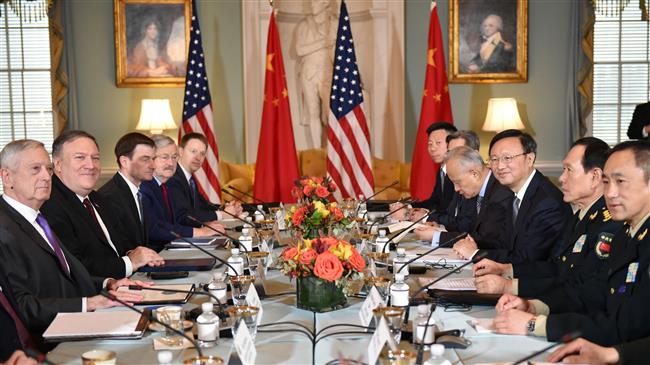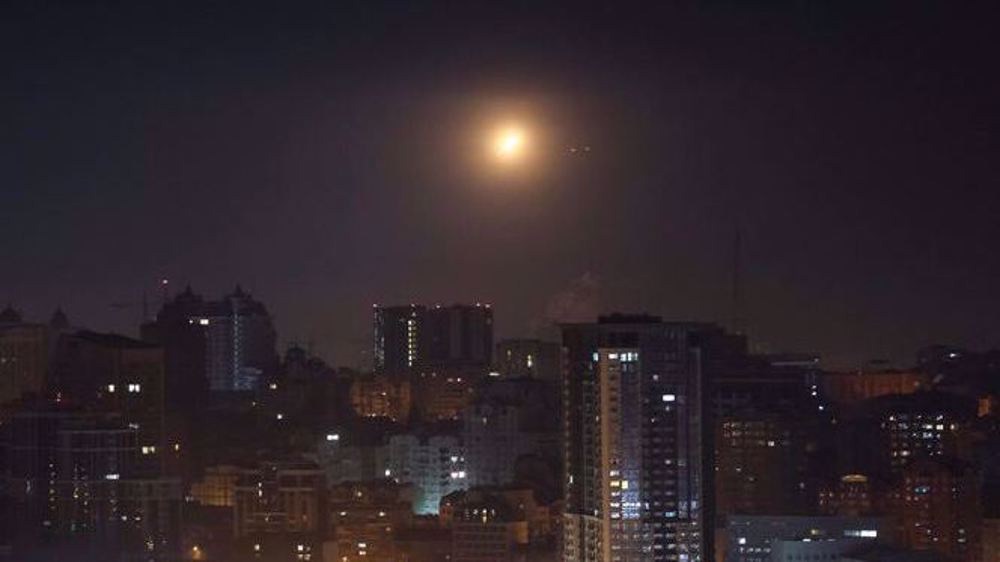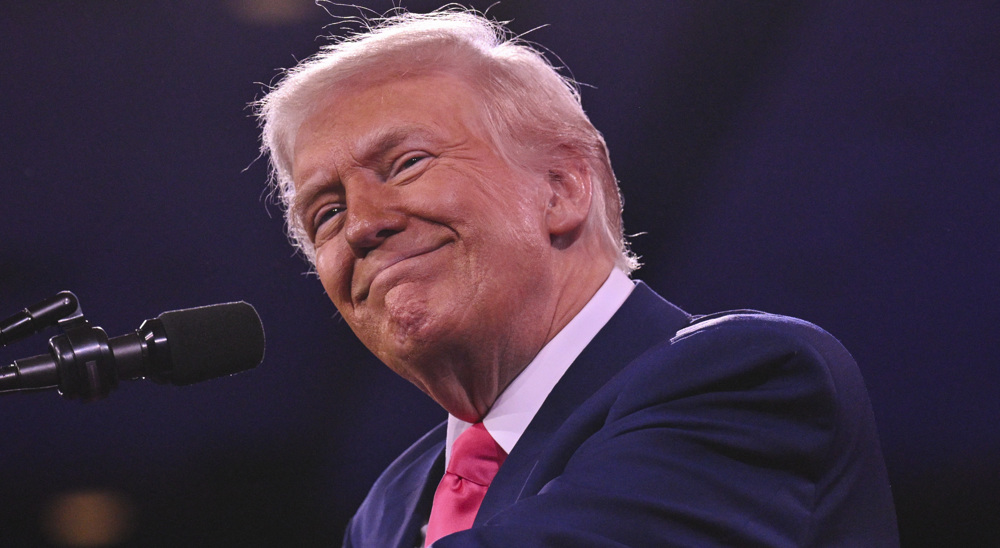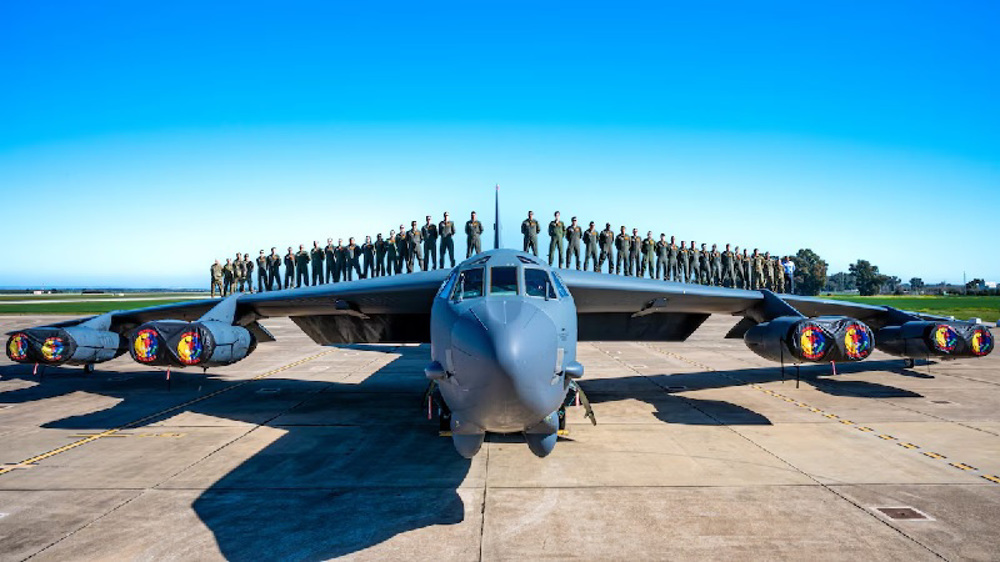Pompeo calls on China to stop militarization of South China Sea
US Secretary of State Mike Pompeo has called on China to stop what Washington claims to be militarization of the disputed South China Sea.
“We have continued concerns about China's activities and militarization in the South China Sea,” Pompeo said on Friday. “We pressed China to live up to its past commitments in this area."
Beijing has repeatedly asserted its sovereignty over nearly all of the South China Sea, which serves as a crossing for more that $5 trillion worth of maritime trade annually. The sea is also claimed in part by the Philippines, Brunei, Vietnam, Malaysia and Taiwan.
The remarks by Pompeo came at a press conference he and Defense Secretary James Mattis held with their Chinese counterparts following their meeting in Washington.
Pompeo and Mattis held talks with Chinese Foreign Affairs Director Yang Jiechi and Defense Minister Wei Fenghe at the State Department in a meeting aimed at reducing tensions over a range of political and military issues.
The meeting was due to be held last month but was postponed after Washington imposed sanctions on the Chinese army for buying Russian weapons and announced new arms deals with Taiwan.
During the press conference, Pompeo said the talks were a placeholder for an upcoming meeting between US President Donald Trump and his Chinese counterpart Xi Jinping at a Group of 20 summit in Argentina later this month.
“As President Trump has made clear, the US seeks a constructive, results-oriented relationship with China grounded in fairness, reciprocity and respect,” Pompeo said.
“Even as our countries confront important differences in the bilateral relationship between the nations, our cooperation remains essential on many many central issues,” he added.
Denuclearizing North Korea was one of the topics that Pompeo said he had discussed with Yang which required cooperation between the two sides.

The top American diplomat noted that the US needed China’s help in its new campaign of economic pressure against Iran in order to force Tehran to give up its nuclear energy and ballistic missile programs while rolling back influence in the Middle East.
Last week Pompeo announced reimposition of the “toughest” sanctions ever against Iran in an attempt to curtail the Islamic Republic’s oil exports and put extra pressure on the country's economy.
Read More:
However, Pompeo admitted back then that Washington had failed to get the main buyers of Iranian oil to tag along and had to grant temporary waivers to China, India, South Korea, Turkey, Italy, Greece, Japan and Taiwan.
Mattis underlines importance of military ties
Taking the podium next was Mattis, who mostly focused on the importance of close military to military ties with China in order to ensure that all Chinese and American warships and aircraft operating off Chinese territories will do so in a “safe and professional” manner.
He was referring to an incident that took place in September, where a US warship had a near collision with a Chinese vessel in the South China Sea.
Washington has long irritated China by conducting so-called “freedom of navigation” missions in the area.
Mattis said Washington sought “peaceful resolution of all disputes” in the region while maintaining open lines of military communication.
“And we made clear that the United States will continue to fly, sail and operate wherever international law allows,” he added.
The meeting came amid an unprecedented trade war between Beijing and Washington, where the Trump administration has slapped high tariffs on over $200 billion in Chinese goods. Beijing has hit back with retaliatory duties on $50 billion of US products.
Iraq warns Syria over security threats posed by Daesh remnants
Nasrallah warned Israel’s war on Gaza threatens entire region: Islamic Jihad
Iran Ground Force deploys live firepower to back up Navy during major maneuvers
‘Lasting epic’: Iran top general says Beirut funeral marked new era for resistance ideology
Conservatives win German parliamentary elections amid surge in far-right support
Israeli jets flyby over Nasrallah funeral ‘act of terror’: Iran FM
IRGC: Nasrallah funeral ‘global resonance of resistance’; Hezbollah resolute to dismantle Israel
VIDEO | Pakistanis attend mass funeral for martyred Hezbollah leaders











 This makes it easy to access the Press TV website
This makes it easy to access the Press TV website